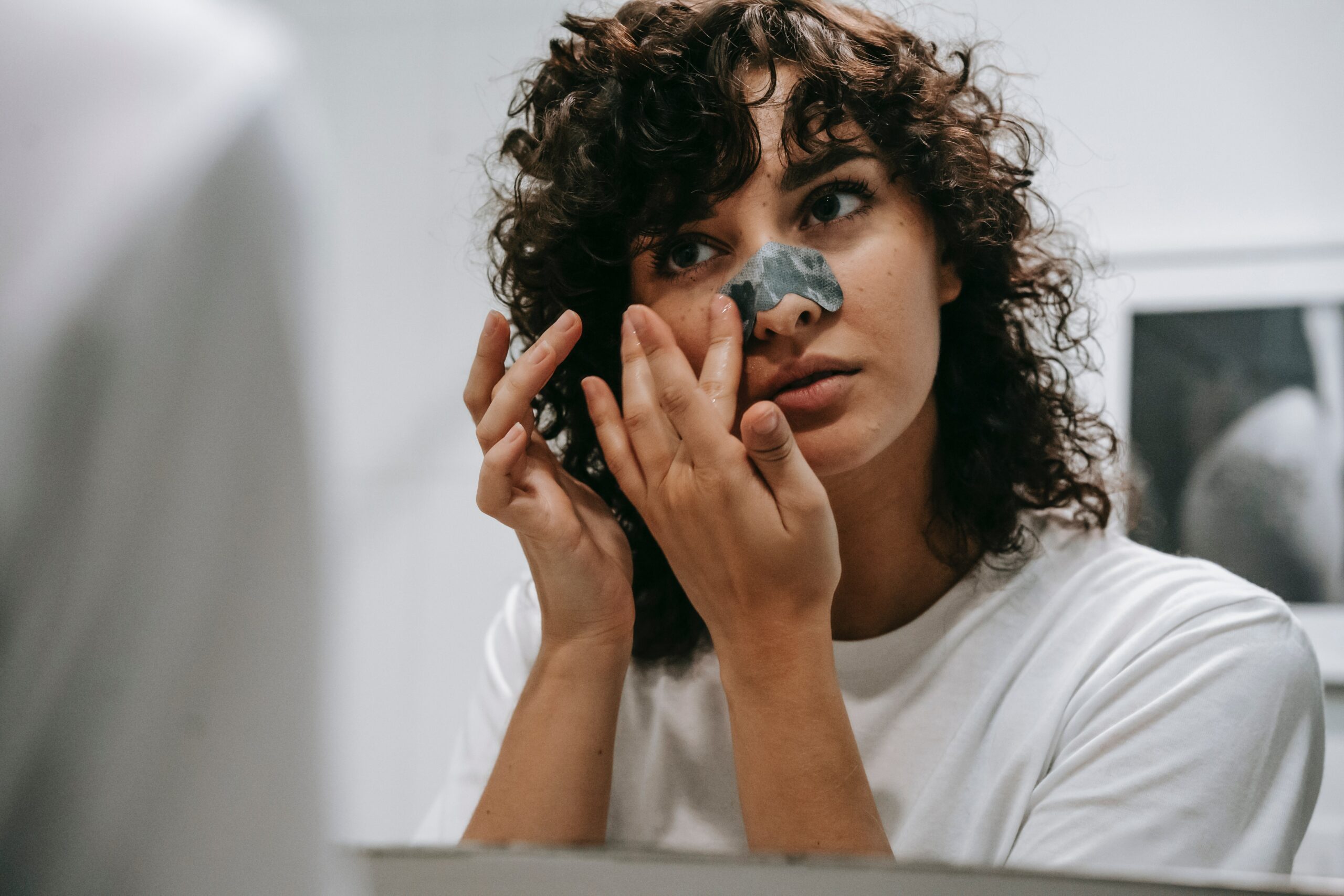Almost all of us have experienced blackheads at some time in our lives. While the issue is more commonly found in people with oily skin, almost anyone can get blackheads. Luckily, there are easy solutions to help you clear up blackheads at home or with professional assistance.
First, it’s important to know what blackheads are
Blackheads occur when our pores become clogged with too much dirt and excess oil from our sebaceous glands. Blackheads appear as tiny black dots on the surface of the skin. Unlike whiteheads, which cause closed pores, blackheads cause open pores, which in turn cause the built-up oil to oxidize and turn dark in color.
While blackheads aren’t often painful, they are unsightly and can be difficult to get rid of.
How do dermatologists get rid of blackheads?
Blackheads often occur due to an acute breakout or cystic acne. When this happens, at-home treatments may not be enough, and professional skincare is required.
Dermatologists use several treatments to target acne and blackheads, including the following:
Chemical Peels
During a chemical peel, the dermatologist applies a chemical solution topically to the skin, helping exfoliate the top layer of the skin, causing it to peel off and reveal the fresher, brighter skin below. This method helps promote new skin cell turnover, helping unclog pores and creating a better base for acne-fighting products to do their magic.
Acne Laser
Laser treatments are a dermatologist favorite for reducing the appearance of acne and the scars that can result from it. Popular treatments include IPL (intense pulsed light), Fraxel lasers, and PRP with laser micro-needling. Laser treatments are highly effective, but the results aren’t instantaneous. It takes about 2-3 laser treatments to start seeing improvements in your skin.
Blackhead Extraction
By now, most of us know not to attempt blackhead extraction at home. But when performed by a professional, acne and blackhead extraction can be a safe method of clearing up stubborn blemishes. Dermatologists use a sterile tool to physically remove built-up oil and skin cells from pores during extraction, causing minimal damage to the surrounding skin.
Extraction is most commonly used when other methods have proven ineffective, as it can quickly become time-consuming and expensive.
At-home treatment options
While it may be tempting to try to squeeze or pinch out excess oil yourself, this can result in skin damage and potential scarring, not to mention it can be pretty painful. There are plenty of over-the-counter treatments available at affordable prices to help you get rid of pesky blackheads.
Salicylic Acid
Salicylic acid is a powerful ingredient that can penetrate deeper into the pores than other acids, such as lactic or glycolic acid. That’s why salicylic acid is so frequently found in products geared towards eliminating acne and blackheads.
Look for cleansers and toners that include salicylic acid to help you break down excess oil and dead skin cells. A daily salicylic acid cleanser can help you fight off acne and blackheads as well as clear away general dirt, grime, and makeup.
Note that many people with sensitive skin find salicylic acid too harsh. Start by using salicylic acid minimally, and then increase usage as your skin adapts to the ingredient.
Exfoliate with AHAs and BHAs
Exfoliating can also help clear away excess oil and dead skin cells. However, avoid physical exfoliants such as harsh scrubs. Exfoliating scrubs are known to irritate the skin, leading to redness and inflammation, and can even cause small tears that can permanently damage your skin.
Instead, opt for a chemical exfoliant like an AHA (alpha hydroxy acid) or a BHA (beta hydroxy acid). Glycolic acid, a commonly used AHA that helps remove oil and dead skin from the skin’s surface, is a great option for people with sensitive skin. For an even gentler option, look for lactic acid, another AHA suitable for sensitive skin.
In addition to clearing up acne and blackheads, regular chemical exfoliation can help improve the appearance of wrinkles and age spots and brighten the skin. Your skin will also feel softer and smoother after consistent chemical exfoliation.
Leave Your Skin Be
Touching your skin too much in an attempt to extract oil from your pores can actually have the reverse effect, adding more oil to the problem area. Likewise, touching your skin too much can lead to irritation and inflammation, only making the problem worse.
Try to keep your hands away from your face as much as possible to avoid irritating acne and blackheads. And remember that it can take several weeks to see results from at-home blackhead treatments. If you don’t see improvement in your skin after several weeks, consider seeking a dermatologist’s help.

